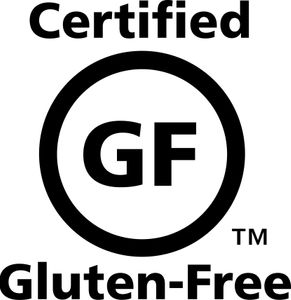Gluten Free: Hype or Health?
Walking down the grocery store aisles it’s hard not to notice all the new health claims in bright lettering on some packaged foods “Low fat!” “No cholesterol!” but lately there’s been a new label that’s been gaining a lot of attention, “Gluten-Free”. Almost every product that is gluten free, is labeled as such. Many people have adopted a gluten free diet, for various reasons. Is it healthy? Should we all be eating this way?
Gluten free diets are the only treatment for symptoms of Celiac disease. According to a new statistic, 1 in 133 people have Celiac disease, the increasing number of people being diagnosed have caused the increase in the popularity of gluten free products. But what is Celiac exactly? It is an auto-immune reaction to gluten in foods. When people with the disease eat products that contain gluten (wheat, barley, rye, and possibly oats), their immune system responds by attacking the villi of the small intestine. The villi are part of the lining of the intestine and they help absorb nutrients. One of the main problems associated with Celiac disease is insufficient nutrient absorption due to the damage to the villi. When people with Celiac disease eat gluten they experience some uncomfortable symptoms such as bloating, gas, constipation, diarrhea, lactose intolerance, nausea and vomiting, and unexplained weight loss. These symptoms are resolved once gluten is eliminated from the diet.

People can also experience ‘intolerance’ to gluten. Food intolerances are not thought to be auto-immune responses, and are slightly less severe than Celiac. GI symptoms with gluten intolerance may include gas, abdominal pain, and diarrhea. These symptoms are usually transient, and are thought NOT cause permanent damage.
So gluten free diets are a good thing right? Many people have been caught in the hype of gluten free diets, and are associating “gluten free” with healthy. Unless you suffer from Celiac disease there is no reason to follow a gluten free diet. It’s important that more gluten free foods are available but consumers are jumping on the band wagon for the newest diet craze. Gluten free diets are very restrictive, they totally eliminate pasta, bread, cookies, pastries, breakfast cereals, beer, and many other processed foods. It also eliminates whole wheat foods, which have proven health benefits. Many non-Celiac people who take on a gluten free diet experience some weight loss and may feel more “energetic” but this isn’t due to no gluten, according to Dee Sandquist, MS, RD, it is often due to an overall decrease in their intake of both calories and fat. Sandquist also points out that some of the “safe” grains in gluten free diets, such as corn, amaranth and rice have less fiber than the gluten containing grains. How can it be healthy to adopt a diet that provides less fiber?
Overall, the availability of gluten free products is impressive, and it’s good that Celiac disease is gaining attention, but people should be weary of adopting a gluten free diet if they have not been diagnosed.
Sources:
- http://www.1in133.org/
- http://www.health.com/health/article/0,,20410322,00.html
- http://www.ncbi.nlm.nih.gov/pubmedhealth/PMH0001280/
- http://foodallergies.about.com/od/wheatallergies/qt/glutenfreediet.htm
For anyone with celiac disease living in Massachusetts, be sure to check out Healthy Villi’s list of support groups around the state!